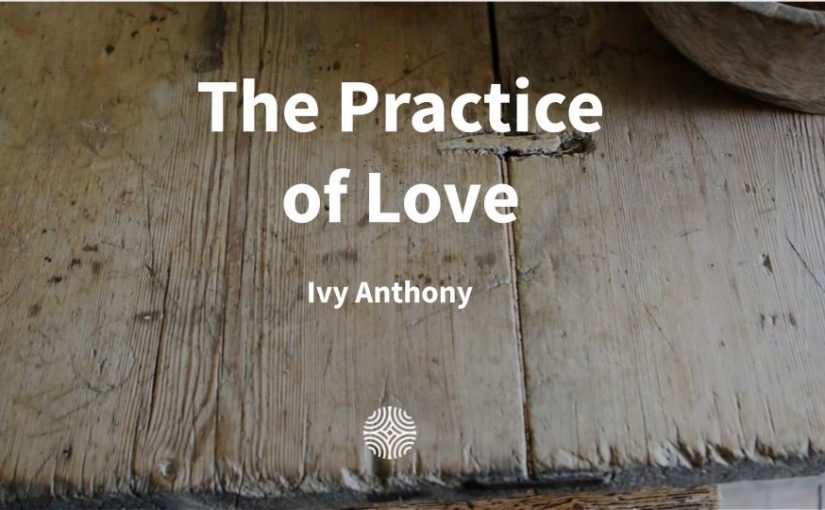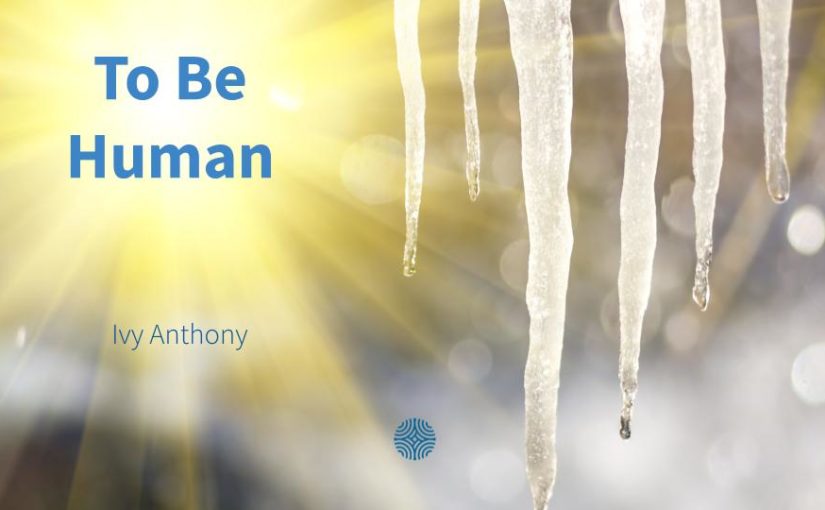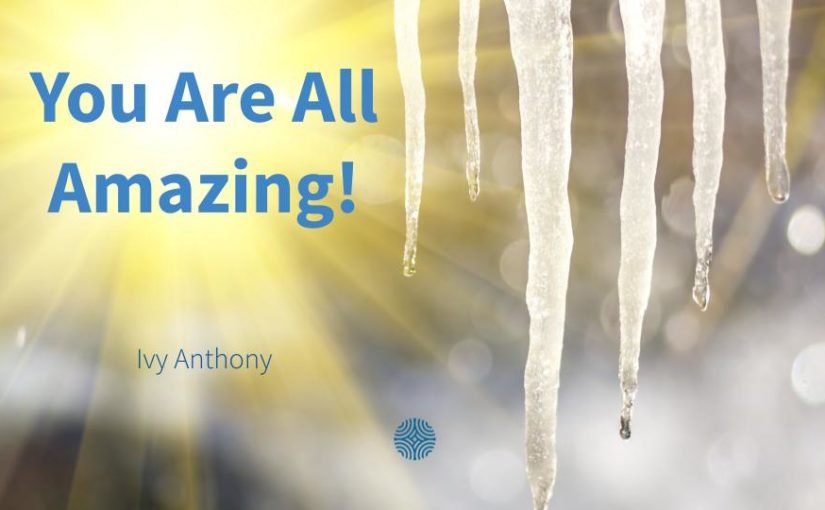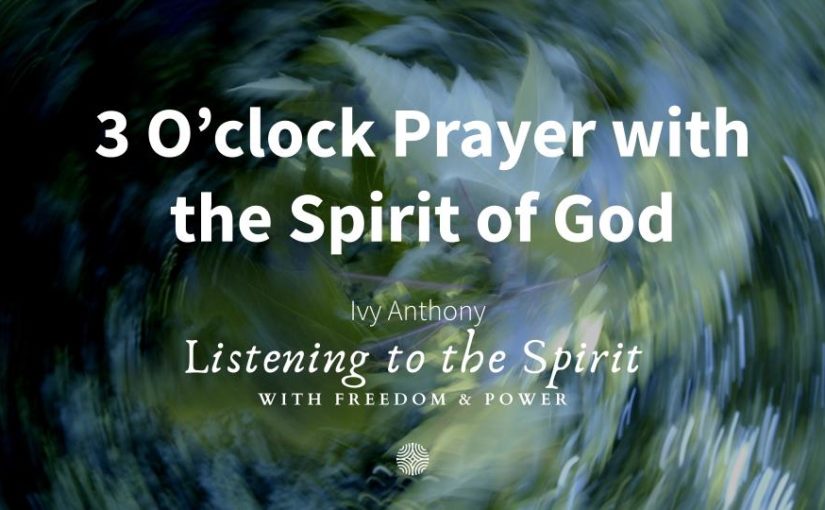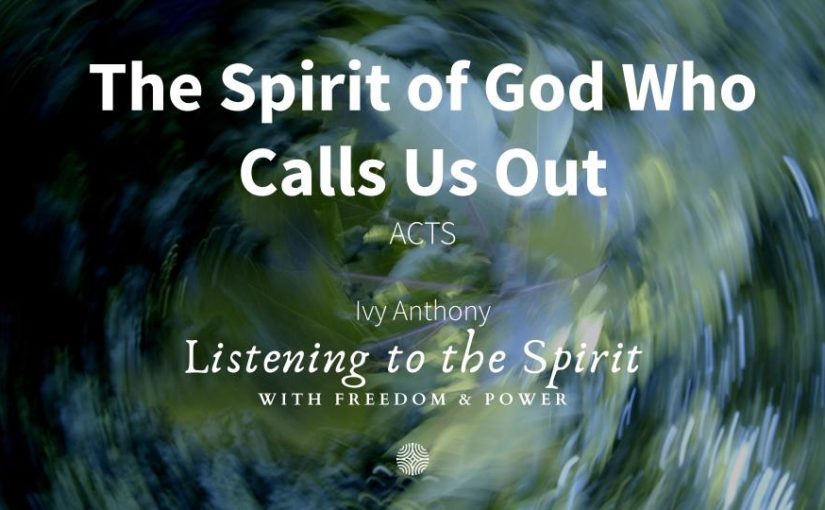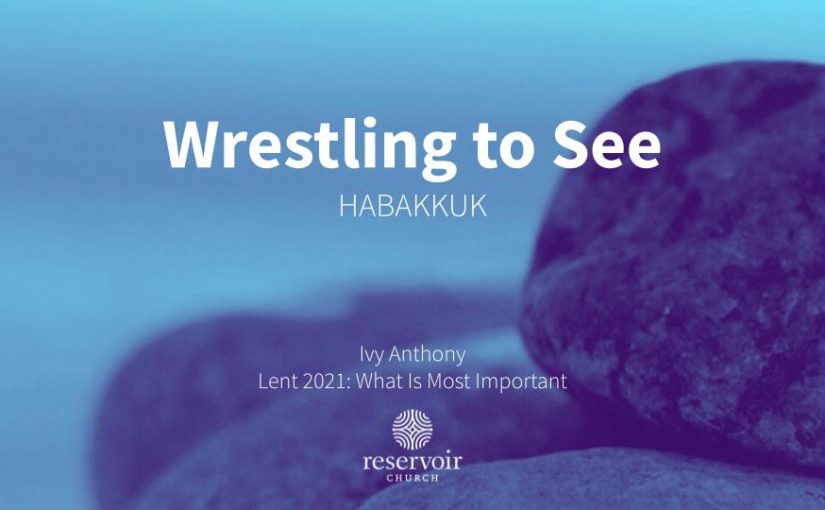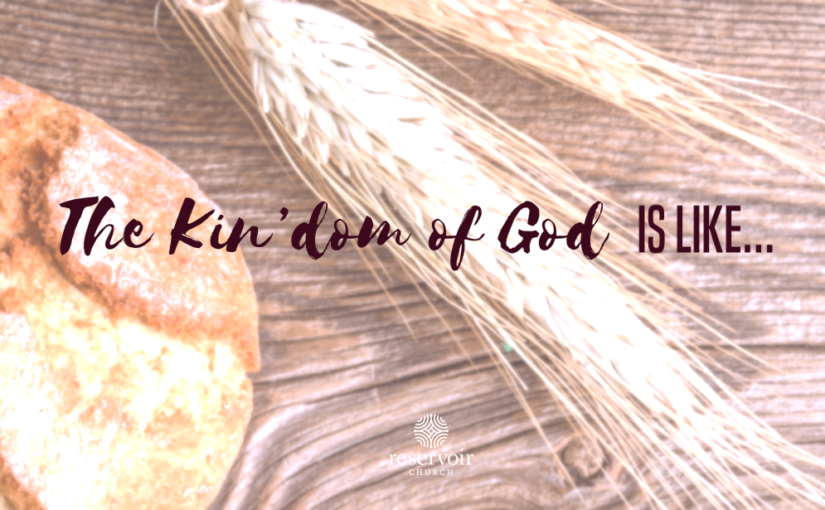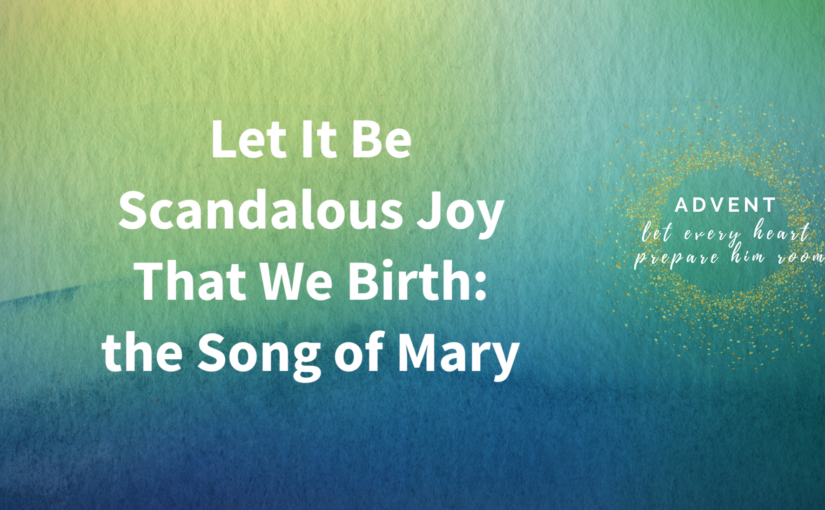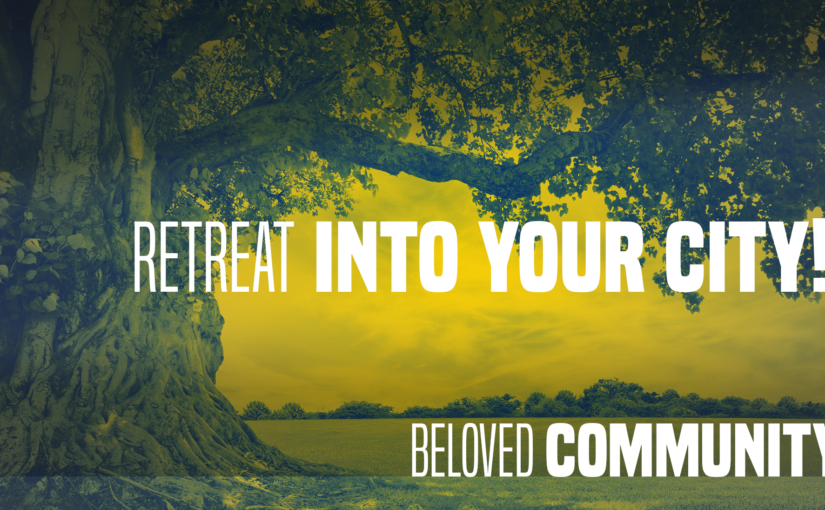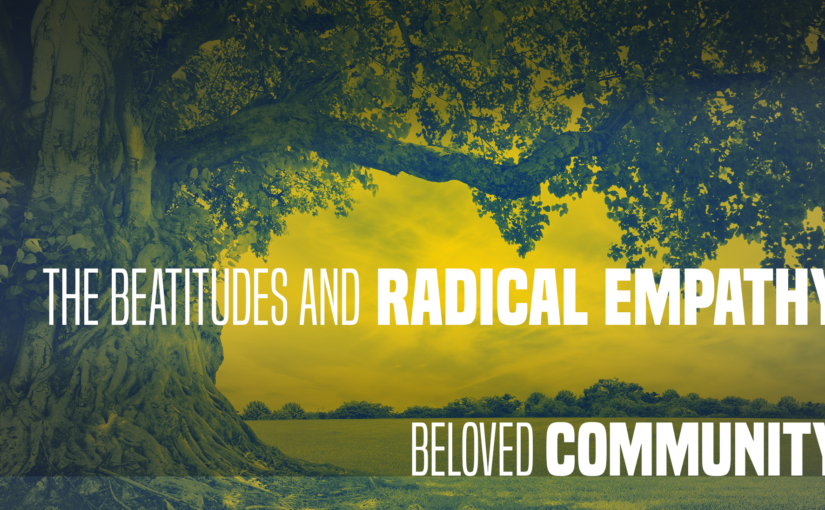For this week’s Events and Happenings, click “Download PDF.”
Good morning everyone! I’m Ivy – part of the staff team here, and it’s a joy to talk to you this morning – as we carry on in this fall series we’ve started called “The Table: How Jesus Gathers.”
And you’ll notice that we are utilizing a present tense verb – ‘gathers.’ We aren’t only drawing from historical context to see what wisdom we can ascribe to our present day, we are extending an invitation for us all to notice what the living Jesus is doing and communicating to us now – as we gather.
This series is also an invitation to reboot. It’s been a while for some of us since we’ve gathered or been around each other’s tables with any consistency. And for the greater part of these last 18 months where “gathering” has really looked different – and suspended – many of us have felt a sense of disconnection – with ourselves/one another and Jesus. A friend of mine relayed this sensation to be like peering in on a great big, familiar table where we used to sit – where we used to be part of creating and growing the Kin-dom of God- and now it feels hard to find the door again.
This makes sense to me, because one of the greatest “plans” God gives to us to help build the Kin-dom of God is to “love God with all our being and love our neighbor as we love ourselves.”
And this plan in its fullest version is not meant to be divided into 3 separate check boxes.
Love God. “Check.”
Love your neighbor. “Check.”
Love yourself. “Check.”
It’s really meant to be a flow, a continuum – a way of being and living – where each hangs on the other and informs the other. This flow is a generative circuit – fueled by the force and of love. So it makes sense that when any one piece is changed, the whole flow is really altered. And this can leave us feeling unmoored/misaligned with ourselves, each other and God – as we try to find a way forward, (or back into that circuit/flow of love.)
And this is also why some of us might feel tired. Because we also feel the longing to move and act and love where there is obvious “lovelessness” in the world around us. We want to put our faith into action. We want to make our beds, we want to be patient with those closest to us – we want to have the energy to call our friend who’s in pain – we want TO BE ENGAGED IN THIS LIFE, fully present to the WHOLE of life. The wonder, the struggle…and it’s really hard when we have been taken out at our knees and are ourselves drifting and trying to stay afloat.
So much of living a life of faith is to both embrace the “mystery” of God and enact “practice” that helps us feel connected to God. And it’s this posture of “practice” that I want to press into this morning. This practice of digging back down to the foundation of God’s love – the practice of returning to love that is implanted in US, and grounds us.
So if this rings true for you this morning – a sense of misalignment /disconnection/ or tiredness in your spirit and body, let’s explore what Jesus offers us at this table he sets for us of Practiced Love and see if it helps us in any way.
And I’ll offer this question for all of us – as a way into prayer:
How are you experiencing the love of God?
Prayer
Jesus help us live into this question, rather than strive for an answer…this morning, come close to us – to our deepest longings, our fear, our grief, our dreams. And be with us. Let your presence be known to us. Let your love move and ground us both.
Story
When I was little one of my favorite activities to pass the time in the summer was to hold little “road-side” sales with my 4 younger brothers.
My brothers would excavate this spot behind our house, which was the woods of Maine, where they discovered if they dug down deep enough they would unearth these “treasures” of all kinds. Namely old apothecary bottles. Some with residual liquid in them, some rusted, some in beautiful blue glass colors, mostly all broken and dirty. Made-up stories accompanied these vials – medicine needed for a tragic horse accident, or pills for somebody’s leg that was amputated when a tractor ran them over, and another held poison for the mean school bus driver.
I didn’t participate in the dumpster dive of our backyard excavation, but I hunted for chunks of mica which surrounded our house foundation – and I added my shiny/glittering/layered rocks to the display of “treasures” that we wanted to sell.
Of course no one ever came, so we’d end up trading with one another. Sitting on the edge of our dirt driveway. And processing some of the bewilderment of humanity and community. The “make believe” stories that we shared were, of course, shaped by our real lived childhood experiences. The stories we had actually heard of tragic deaths in our town – and how we would deal with the people who were mean to us on the bus, etc.
There’s something to me in this memory – that speaks of the innocence – but also the depth – and embodied experience of God’s love (and also of the reality that we probably all needed tetanus shots long before we actually got them). We felt seen and known, and empowered, creative and connected – regardless of anyone acknowledging our “treasures.” AND it was also this place where we were trying to figure out HOW to practice love. How to love our neighbor.
Maybe you have some early memories too – of where you felt most free/connected to others, the earth, and yourself? Maybe they (like mine) are pretty quirky – but somehow give you glimpses of the foundation of GOD’s love for you. I think these memories are really important, and perhaps our firmest foundation.
Let’s read the scripture together from Luke – and see how these words can help us along this conversation of the importance of experiencing God’s love.
Luke 6:45-49
New International Version
45 A good person brings good things out of the good stored up in his heart, and an evil person brings evil things out of the evil stored up in his heart. For the mouth speaks what the heart is full of.
46 “Why do you call me, ‘Lord, Lord,’ and do not do what I say?
47 As for everyone who comes to me and hears my words and puts them into practice, I will show you what they are like.
48 They are like a person building a house, who dug down deep and laid the foundation on rock. When a flood came, the torrent struck that house but could not shake it, because it was well built.
49 But the one who hears my words and does not put them into practice is like a person who built a house on the ground without a foundation. The moment the torrent struck that house, it collapsed and its destruction was complete.”
Now let me tell you – I’ve been shook this year…disjointed.
There has been so much grief, suffering, shock, hurt, upheaval. We may not have consciously chosen to “store” these things/feelings/events in our hearts, but the “storing” just happened because it’s been so intense, so non-stop –just torrent after torrent.
“That is exactly correct!”
I think Jesus would say.
This is the experience of being human. Sometimes life comes at us so fast, and so hard – we cannot possibly stay afloat if we attempt to process everything immediately and so we do end up putting it in the stock room of our hearts.
And so when I feel as though, ‘I’m just doing my best – I’m waking up in the morning and trying to put one foot in front of the other’ these verses can feel damning.
There’s a way that I can read this scripture and think – am I not well built? Should I be concerned about my “foundation?” Have I not listened well? Should I practice more? Practice harder? Practice differently?
The practice of our faith tradition does rest on the fulcrum of love. Again to love one another, God and ourselves. And that way of loving has taken shape through various tools that help us practice that love. The fundamentals of our faith tradition give us “scripture and scripture study”, “singing and worship,” prayers and rituals. And I’m so thankful for the centuries of these traditions – they are often grounding for me. And even with these valid and meaningful tracks I found it really hard to do anything (like put real pants on), nevermind meditate on scripture in a way that helped me feel connected to people I couldn’t be with – and that was really unmooring for me.
And might I suggest that as I’ve wrestled with this, I uncovered that while our faith traditions are meaningful, helpful and necessary – they are also, INCOMPLETE. And that they can’t in and of themselves entirely “house what it is that is needed to hold us together” in times of upheaval.
We need something bigger than that…that we might need to practice unearthing, digging down deep for…
LOVE
The practice Jesus could be talking about in these verses, is the practice of returning to God’s love, AND the practice of the experience of God’s love for you as a foundation. This is very much not about an idea or a theory or study of God’s love – it is about the experience of God’s love.
And the practice it requires is to return, to uncover, to dig down to the core of ourselves and believe that we are loveable.
Knowing that we are loveable as our full/fallible/messy selves, is where the uniqueness of your story and God’s story intersect. And there really is no foolproof method to discovery. It takes your reflection and excavation to figure out the components of what helps aid you in the experience of being loved by God unconditionally.
This is not navel-gazing. But it does sharpen our clear-sightedness of who we are in God- before we worry about someone else’s behavior or actions. It’s about seeing ourselves clearly as loved, this is uncovering our foundation, peeling back those layers to remember that the image of God – the fullness of God resides in our cells – and that we are the tables set w/ God’s love.
This grounding practice of returning to the experience of God’s love – enriches our awareness of this force, in all of our spaces. Love, as the first filter we move through each day, is essential because so much of what comes at us is lovelessness. And this is why it takes practice. Practice. Practice, to return again and again – throughout the day to the love of God. To rest, to regroup, to scream,
“GOD?! WHAT IS HAPPENING!?”
To express our full selves and find our footing once again – so that we can go out into our field of practice – the world around us.
If we cling only to the theoretical methods of LOVE , if we rush to help – to be a neighbor, to grow beloved community – without first experiencing the love of God, these methods may prove to shift us away from the treasure of love inside of us and make us strive to reach God rather than be loved by God.
We don’t always know who or what we can love on a given day. The most we can know is where or what we are loving from, and the best we can do is to love from a true place in ourselves. This makes our potential to love one that is bendable, flexible, transformative – even as we face those we regard as enemies or strangers.
Here’s the thing – we need to continually practice situating ourselves in that flow of the greatest commandment. Our experience of God’s love is not only for our self satisfaction but is also for communion/interconnectedness with others.
God’s propulsive love for us – roots in us a propulsive love for humanity, and as Thomas Merton says,
“we do not become fully human until we give ourselves to one another in love.”
STORY PART #2:
Part of the practice of returning to GOD’s love and deeply knowing that we are loved – is that it informs the stories we tell ourselves and others, of God.
That little memory of digging for old bottles and collecting mica (in what I now know was an old town dump) in our backyard is that it formed in me the earliest, most fundamental story of God – even before I had language for God. The story that GOD was big enough to hold the broken/jagged edges of life – and also the beauty. BOTH in one place. AND GOD’s love is stretchy and expansive enough to hold it all, and the stories that attach to that.
Last year Scott’s brother died suddenly, and his widow was visiting and at our table last Friday evening. I listened to the stories stored up in her heart – the story of grief – it’s piercing freshness, and the tears and the pain of a lot of unresolved layers that are part of that grief.
And I knew that night that I had listened to the words of God – listened to the story of practiced, experiential love expressed through our sister-in-law. Her mouth spoke of the absurd reality of a husband gone too soon –
“I don’t know – I just don’t really know why all this happened the way it did.”
And her heart spoke of her knowing of God,
“but I know I’m not alone in this. I have no answers. I’m not fixed. But I’m not alone.”
To open our hearts more fully to the table of love’s power and grace we must dare to acknowledge how little we have control or understanding of love in both theory and practice, and yet it is so compelling that we must STILL dare to believe that it means everything.
The next day we had 15 or so folks around our backyard table. And I listened to the stories of new engagements, and the start of grad school and stories that traced the last 18 months. Of being homeless and living in a shelter, and I watched videos of cats and ate pumpkin bread and I listened to the story of a lifetime of hustling to have a seat at any table – be seen and heard, and stories of longing. And more hope and more quirkiness and a dizzying array of the love of God.
And I knew that that night too that I had listened to God. I had listened to the story of practiced love expressed through everyone who gathered.
Because just below the surface of pumpkin bread and (wine), and a warm fall night – are the treasures that we unearth as we sit in the company of one another. Those around the table that we know we love, those that we wonder if we will love, those that we struggle to love and those that we wish believed our love -and somehow we see the fullness of jagged edges and THE LOVE OF GOD that has helped us both hold the poison of this world and the elixir for this world in one vessel/one view/one aperture.
Navigating these tables is where we find the blueprint – the components of creating and building the kin-dom of God, the Beloved Community.
BELOVED COMMUNITY
As you might know, Reservoir has over the past couple of years – formed a 5-year vision which is to continue to become the Beloved Community we are called to be. And we have 5 bullet points that frame that vision out – we aim to become:
- Diverse and anti-racist.
- Welcoming, and a place of profound belonging.
- Radically generous.
- Empowering wholeness, love, and justice in people and communities, promoting whole life flourishing.
- Innovating as a church – so that our ministry is less dependent on any one gathering but includes many life-giving new ways to experience and be church.
Maybe not so surprisingly, this vision rests on Jesus’ ethic of love. And a love ethic presupposes that everyone has the right to be free, to live fully and well. And yet to love in this way – to grow and create Beloved Community (and why it’s still in process) – is because it requires a fundamental shift in our social fabric. It requires us to embrace a global vision that recognizes how our lives are intimately intertwined and impactful to the other.
SPOILER ALERT: *We aren’t there yet*.
However, as we engage with this need for change, we would do well to embrace the entry point that isn’t written on our website – that isn’t indicated in our 5 bulleted points. This is the invitation of God as outlined in the verses we read today – to hear God’s words
“you are loved, you are loveable, “beloved”, “I LOVE YOU”
and put them into practice. To practice as a starting point, our experience of the love of God – because that is the most compelling, most inspiring, most rock-steady foundation we can build from.
It’s also the least well-defined.
If you revisit a lot of Dr. King’s speeches and civil rights history – you might notice that there isn’t a single speech where he completely unpacked what the Beloved Community means. Perhaps it’s because it was intentionally left incomplete.
That the gaps are left for us – we, the people – to fill in.
That our lived expression of the experience of God’s love – would be the mortar that gives shape and sirs up the vision, filling it in with our uniqueness, our priorities, our skills, our passions, our social locations and vantage points.
Now, there are values that undergird Dr. King’s Beloved Community vision for sure, and if you read the full chapter of Luke 6 – you’ll see that Jesus also offers guardrails for a “way” forward. A way of grace, nonviolence, peace-making, loving enemies, forgiveness, restorative justice, transformative justice, social and economic justice. Making seats at the table – for those who are oppressed, marginalized, disinherited – and embodying a generous inclusivity, a radical sharing.
And the first brick of all of that – is a community built on the experiential love of God.
God gave us the bones of the vision.
And we are the marrow.
WE ARE THE TABLES
As Dr. King, Jesus, Merton, bell hooks, and all the voices I draw from show us – that love is not a weak, easy, utopian idea. Love is an active force that can lead us into greater communion with the world. In fact, it is extolled as the primary way we (LOVE our neighbor), it’s how we end domination and oppression.
bell hooks, -In this vein then our “action” is like a sacrament, a visible form of an invisible spirit – an outward manifestation of an inward [force – of love] a disruptive picture of power to those that hold it.
As we lean into God’s love, dig deep and unearth that steady foundation of love – our way of being in the world will become more intrinsically healing and liberating to those who are not privileged by the current systems and status quo.
To be human is a chronic condition. The torrents of life will. Keep. coming.
We can’t fix or solve it. We can’t practice our way out of reality.
But we can withstand. We can lift our heads above the waves and find oxygen.
As we practice opening our hearts more fully to Love’s power and God’s grace. It’s what keeps our hearts longing for more – for liberation – for a better way forward – for a vision of beloved community that isn’t quite in full view yet – but is still very much alive.
As bell hooks says,
“we learn that love is important everywhere, and yet we are bombarded by its failure…yet don’t let this bleak picture alter the nature of your longing. Still hope that love will prevail. Still believe in love’s promise.”
Jesus loves you. Really really loves you – and he wants us to fully live this life, with this “way” of love as your founding and organizing principle.
Let me pray us out – utilizing the image from our spiritual practice.
Take a moment to situate yourself in this image… where are you?
How close are you to the spray? The waves?
Take a moment to locate Jesus… where is Jesus? How close is Jesus’s love to you?
Resource: bell hooks, “All About Love: New Visions”


